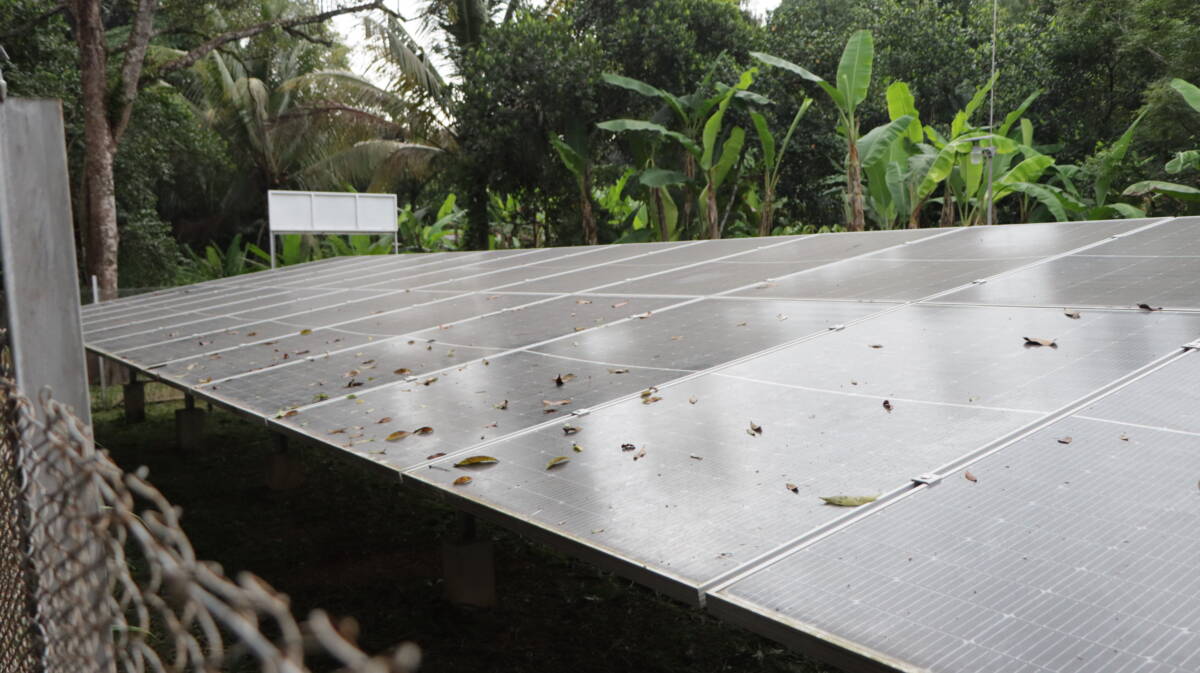Jakarta, 19 July 2024 – Amidst the dominance of coal as the primary energy source, encouraging renewable energy is becoming increasingly crucial for environmental sustainability and future energy security. According to a Ministry of Energy and Mineral Resources (ESDM) report, coal still dominates Indonesia’s energy mix. By 2023, the coal mix in national primary energy will reach 40.46 percent and petroleum 30.18 percent. Coal has significant adverse environmental impacts, such as high greenhouse gas emissions and air pollution. Therefore, a shift towards renewable energy such as solar, wind, and hydropower should be prioritized to reduce adverse environmental impacts.
His Muhammad Bintang, Coordinator of Energy and Electricity Resources Research, Institute for Essential Services Reform (IESR), stated that, based on the IESR study Beyond 443 GW Indonesia’s infinite renewable energy potentials, Indonesia has a total technical potential of solar, wind, water, and biomass energy of 7,879.43 gigawatts and 7,308.8 gigawatt-hours for PHES. Unfortunately, this renewable energy potential has not been maximized.
“For this reason, it is expected that the next government under the leadership of Prabowo Subianto needs to increase its ambition in accelerating renewable energy to achieve the Net Zero Emissions (NZE) target of 2060 or earlier. Indonesia also needs to show stronger and more consistent political will. For example, related to investment needs that need to be facilitated by the government,” said Bintang in IESR’s Instagram Live with Muhammadiyah Green Cadre on Wednesday (17/7/2024).
Bintang emphasized that there are two challenges in accelerating renewable energy amid the dominance of coal. First, Indonesia is currently dependent on coal to generate electricity. Second, Indonesia depends on coal to create an economy in coal-producing regions. The IESR study titled Just Transition in Indonesia’s Coal Producing Regions, Case Studies Paser and Muara Enim found that coal revenue sharing funds (DBH) contributed 20 percent of the total revenue budget of the Muara Enim Regency Government in 2023 and 27 percent of the total revenue of the Paser Regency Government in 2013-2020. However, this economic value does not contribute significantly to the income of coal industry workers.
“Reflecting on these conditions, the government must prepare for economic transformation in coal-producing areas. Post-coal mine economic transformation planning must prioritize economic activities that provide more multiplier effects to local communities. In addition, we need to transform electricity infrastructure to be more suitable for renewable energy,” said Bintang.
On the other hand, along with the echoing issue of energy transition, President Joko Widodo (Jokowi) issued the granting of mining business licenses (IUP) to religious community organizations (mass organizations). Bintang admitted, questioning the urgency of the regulation’s issuance to the government. Given this, the government has also committed to achieving NZE 2060 or earlier.
“A clearer and more concrete explanation is needed regarding the issuance of this regulation so as not to arouse suspicion. The rules for granting IUP are also somewhat contrary to Presidential Regulation (Pepres) No. 112 of 2022 concerning arrangements for accelerating the development of power plants from renewable energy sources,” said Bintang.
Aula Rahma N, Muhammadiyah Green Cadre, stated that regarding the granting of the IUP, her party questioned the Muhammadiyah Management basically if they accepted the IUP offer. Aisyiyah (under Muhammadiyah) is pushing for a clean energy transition, and his party, as a youth representative, asked PP Muhammadiyah to consider their fate as the next generation living on this earth.
“As a religious organization that also carries the values of protecting and caring for the environment, Muhammadiyah needs to pay attention to environmental sustainability and economic aspects. What may be a dilemma for fathers and mothers (Muhammadiyah administrators, ed) is that this mining has good economic value. However, we must also examine the environmental impact,” added Aula.
Additionally, Aula also emphasized the younger generation’s role in mitigating the climate crisis as the earth’s temperature gets hotter with creative campaigns. According to him, the Muhammadiyah Green Cadre continues to actively and actively educate about renewable energy around their neighborhood. For example, the Green Cadre of Muhammadiyah Malang invites students in the region to study and discuss renewable energy, how to utilize it, and energy justice.
“Not only educating about renewable energy, we also promote the issue of climate crisis. We even introduced the issue of the climate crisis to students in elementary schools so that they know about it,” said Aula.

